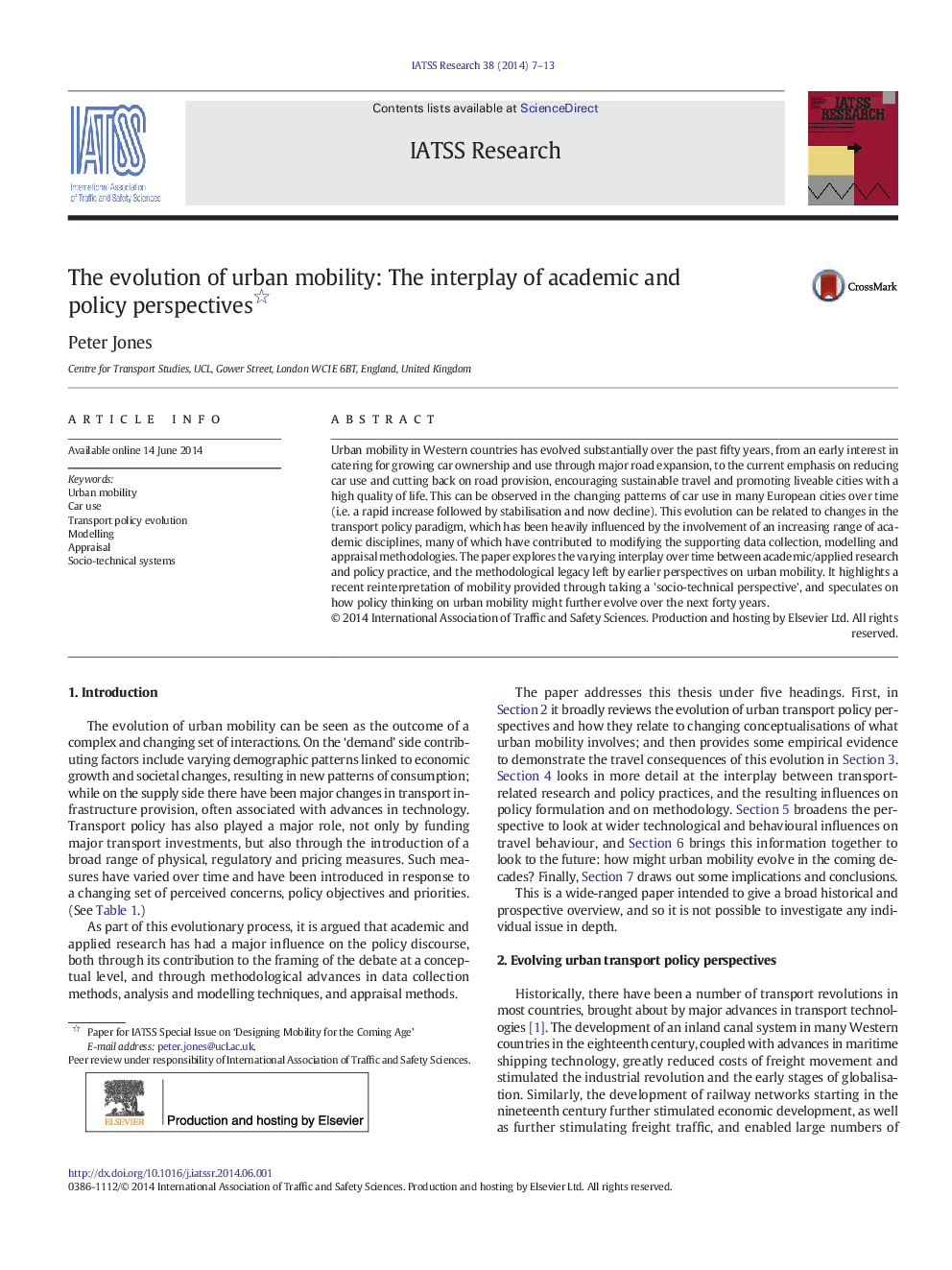| Article ID | Journal | Published Year | Pages | File Type |
|---|---|---|---|---|
| 1104629 | IATSS Research | 2014 | 7 Pages |
•Urban transport policy develops over time, as cities evolve and priorities change.•Early focus on major investment for cars, in roads and parking•Advanced cities promote sustainable modes & high quality streets: car use declines.•There are ‘legacy’ issues in modelling and appraisal, linking back to car policies.•Need to pay more attention to the wider socio-technical context of travel.
Urban mobility in Western countries has evolved substantially over the past fifty years, from an early interest in catering for growing car ownership and use through major road expansion, to the current emphasis on reducing car use and cutting back on road provision, encouraging sustainable travel and promoting liveable cities with a high quality of life. This can be observed in the changing patterns of car use in many European cities over time (i.e. a rapid increase followed by stabilisation and now decline). This evolution can be related to changes in the transport policy paradigm, which has been heavily influenced by the involvement of an increasing range of academic disciplines, many of which have contributed to modifying the supporting data collection, modelling and appraisal methodologies. The paper explores the varying interplay over time between academic/applied research and policy practice, and the methodological legacy left by earlier perspectives on urban mobility. It highlights a recent reinterpretation of mobility provided through taking a 'socio-technical perspective', and speculates on how policy thinking on urban mobility might further evolve over the next forty years.
